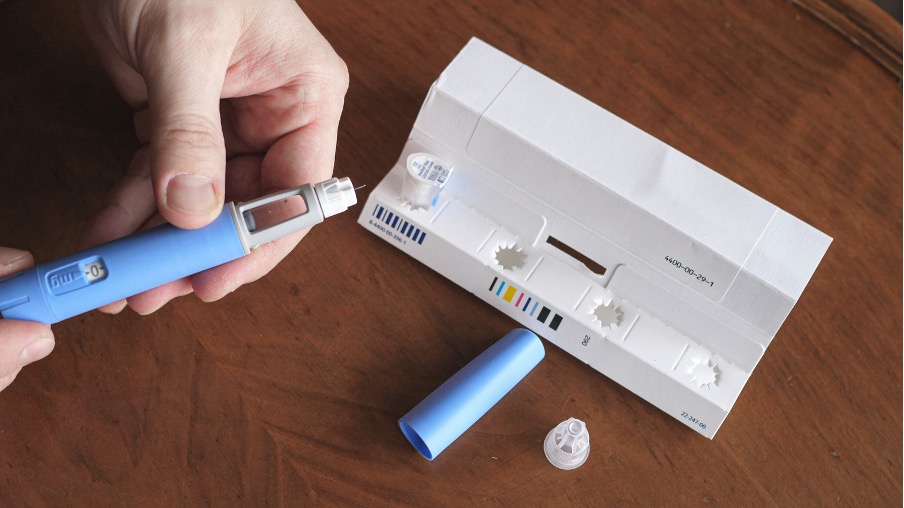Menopause brain fog: why it happens and how to manage it


Have you ever walked into a room and forgotten why you went there? Or felt that your thoughts don’t flow as easily, that you lose words, or forget appointments?
These phenomena are often referred to as “brain fog”, and they are among the most frequently reported cognitive symptoms by women in perimenopause and menopause.
It’s not “all in your head”: scientific research confirms that many women experience changes in memory, attention, and mental processing speed during this stage of life.
The good news is that this state is not permanent for everyone and can be improved with targeted strategies.
What are the symptoms of brain fog
“Brain fog” is not a medical diagnosis but a common way to describe a group of subjective cognitive difficulties.
Typical symptoms include:
- Difficulty concentrating
- Short-term memory loss or frequent forgetfulness
- Trouble finding words or forming sentences
- Mental “blur” or feeling “foggy”
- Reduced reasoning or mental processing speed
These symptoms can range from mild to moderate and often overlap with other menopausal issues such as sleep problems, hot flashes, or mood changes.
The causes of brain fog
Cognitive changes during menopause are multifactorial. Here are the main factors identified in scientific literature.
Hormonal fluctuations and estrogen decline
Estrogens play a protective role in the brain, particularly in areas linked to memory, attention, and neural plasticity (hippocampus and prefrontal cortex).
When estrogen levels decrease or fluctuate as happens in the menopausal transition, women may experience both subjective and objective cognitive changes.
Longitudinal studies show that difficulties in verbal learning and memory often appear precisely during this phase.
Sleep disturbances and night sweats
One of the strongest connections is between sleep quality and brain fog.
Night sweats, awakenings, and fragmented sleep interfere with memory consolidation processes and slow down cognitive functions.
In a scenario of chronic sleep deprivation, the brain “without recharge” performs at a reduced capacity.
Related menopausal symptoms
Other menopause-related symptoms can aggravate brain fog:
- Low mood, anxiety, and stress, which interfere with attention and memory
- Hot flashes, sweating, and vasomotor symptoms, which increase mental distraction
- Metabolic issues and insulin resistance, which can affect brain energy
- Nutritional deficiencies, such as low iron: a recent study found that below-normal iron levels are associated with poorer cognitive performance during the menopausal transition.
Other modifiable factors
Lifestyle and environmental factors can also influence brain fog:
- Sedentary habits and lack of cognitive stimulation
- Diet poor in key nutrients for brain health
- Chronic stress and high cortisol levels
- Consumption of alcohol, nicotine, or environmental toxins
What research says: objective evidence
While many women report subjective symptoms, objective studies have also observed measurable (though small) cognitive changes during menopause:
- Declines in verbal memory, fluency, attention, and executive function during the menopausal transition
- These changes generally remain within normal limits and do not indicate dementia or neurodegenerative disease
- Cognitive variations are more pronounced during perimenopause than postmenopause, suggesting a “peak” of symptoms in the transition phase
In short: yes, brain fog is real, but it’s usually temporary and manageable.
Strategies to overcome brain fog
Here’s what women can do to improve mental clarity during menopause, always in consultation with their doctor.
Sleep hygiene
- Keep consistent sleep and wake times
- Create a dark, cool, and quiet environment
- Avoid caffeine and screens in the evening
- Manage night sweats with breathable clothing and room temperature control
Improving sleep quality often significantly reduces brain fog.
Physical activity and cognitive stimulation
- Regular aerobic exercise improves blood flow and brain plasticity
- Strength training supports overall metabolism
- Stimulate your mind: read, do memory games, learn new skills, solve puzzles
- Practice meditation, mindfulness, or cognitive training to strengthen focus
These activities help “wake up” the brain and counter cognitive slowing.
Brain nutrition
- Get essential nutrients: iron, B vitamins, omega-3s, antioxidants
- Follow a Mediterranean-style diet rich in whole grains, fruits, vegetables, fish, and healthy fats
- Avoid blood sugar spikes (from simple sugars) that can disrupt focus
- If iron deficiency is suspected, consult your doctor for testing or targeted supplementation.
Stress management and emotional balance
- Practice relaxation techniques (breathing exercises, yoga, meditation)
- Consider psychological counseling or cognitive-behavioral therapy to manage anxiety and mood
- Reduce mental overload: delegate tasks, minimize multitasking, take breaks for mental recovery
Medical support and hormonal therapies
- Get a full hormonal evaluation from a gynecologist or endocrinologist
- In some cases, hormone replacement therapy (HRT) can improve symptoms that contribute to brain fog, such as hot flashes and sleep disorders
- Consider pharmacological or natural supplements only if prescribed and monitored by a specialist
- Regular checkups help fine-tune therapy over time
When to see a doctor
Brain fog is often temporary and manageable, but seek medical advice if it worsens or becomes disabling, it’s accompanied by severe memory loss, confusion, or disorientation and there are other health conditions such as hypothyroidism, severe anemia, or neurological disorders
In such cases, an in-depth medical evaluation is essential to rule out systemic or neurological causes.
The Pausetiv vision: a space for the mind
At Pausetiv, we believe that the mind is an essential part of hormonal health.
Through the Diary of Symptoms, every woman can track daily patterns of sleep, energy, concentration, and mood, creating a useful overview to share with her doctor.
This approach makes it possible to observe personal trends, identify correlations (for example, symptom peaks on days with more hot flashes), and act through personalized strategies.
Brain fog is not a flaw in your brain: it’s a signal to interpret, not ignore.
Brain fog in menopause is real, but it is not a life sentence.
With awareness, lifestyle changes, and medical support, women can lessen discomfort and regain mental clarity.
Start tracking your cognitive changes today in your Diary of Symptoms, and discover how Pausetiv can support your mental and hormonal health at pausetiv.com

Related
Articles



